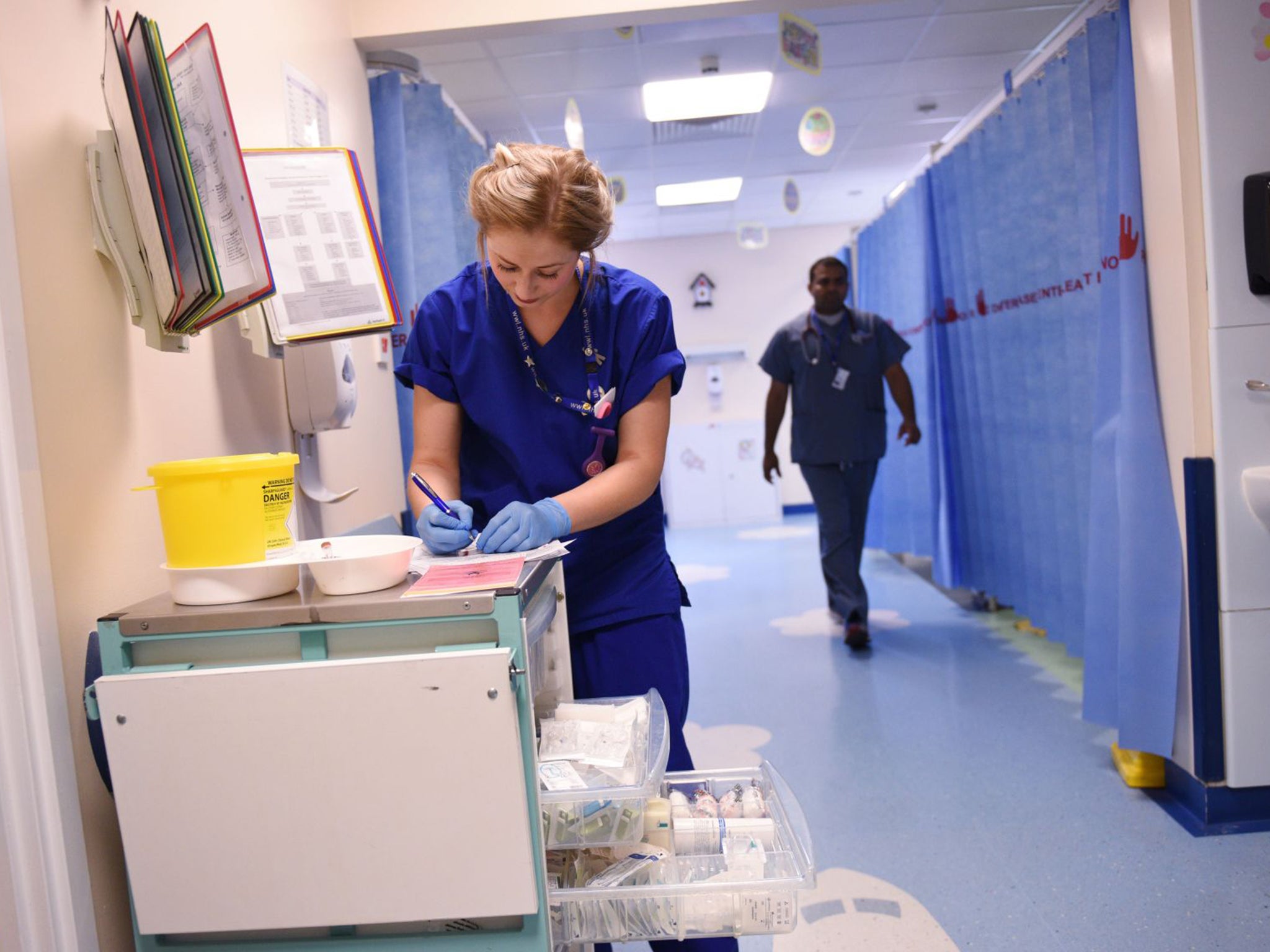Jeremy Hunt urged to 'come clean' on how Government will pay for seven-day NHS
The Health Secretary is under pressure: funding for the Tories’ election promise has yet to be finalised

Labour has called on Jeremy Hunt to “come clean” on how the Government will pay for a seven-day NHS, after senior health officials continued to dodge allegations that the key manifesto promise was not costed before last’s year’s election – and is still being worked out.
Heidi Alexander, the shadow Health Secretary, said ministers “hadn’t been straight” about the scale of the NHS’s current financial crisis. She said that until the Health Secretary offered full details on the cost of extra staff and other resources needed to deliver a seven-day operation, the public would remain sceptical.
The Independent on Sunday last week contacted senior health advisers and economists who have worked on NHS funding plans since the general election last May. There was a near unanimous acknowledgement that the Department of Health’s reluctance to put a clear price-tag on the move to a seven-day service, was due to the fact that the financial arithmetic of the policy has yet to be completed. Hard-line tactics were deployed by Mr Hunt during recent pay negotiations with junior doctors. He eventually imposed new contracts despite widespread objections.
However Charlie Massie, the DoH’s director general for external affairs who appeared before the Commons Public Accounts Committee last week, said “conversations” on the final bill were still taking place. This idea of a work-in-progress, rather than a well-calculated policy, angered MPs. He told them there was “no separate pot set aside for something with the specific label of seven-day services”.
Commenting on the suggestion that Mr Hunt’s department is still engaged in calculating the cost of a showcase election promise, Ms Alexander said: “Everyone supports the principle of a seven-day services. However Jeremy Hunt’s plans are simply not credible without the extra resources … If his plan is simply to deliver more care by spreading existing services more thinly, he should be honest and say so.”
The British Medical Association, the trade union and professional body that represents 170,000 doctors in the UK, says the Government has still to offer precise details about what it intends to introduce, how many staff will be needed and what it will cost.
An NHS report published last year indicated that to introduce a functioning seven-day NHS service, upwards of 11,000 extra staff would be needed. The figure included an additional 1,600 consultants, 1,500 registrars and 900 doctors below consultant grade. A further 3,000 nurses were also part of the calculation. Accountants Deloitte, acting for the DoH, estimated this could translate into net annual additional staff costs of more than £900m.
The overall final bill may be much higher. The current budget for the NHS in England for this year is £116bn. The 2015 Spending Review estimated the NHS budget would increase to £133bn by 2020. Another report last year estimated the delivery of a seven-day service would require an additional 2 per cent above the current total income, suggesting Mr Hunt would need to find least a further £2bn in the short-term.
The BMA says the £2bn figure grossly underplays the real costs, and that if the switch to a seven-day service is to be more than political spin it should reflect an increase in the NHS’s workload of up to 40 per cent – which could push costs up by £10bn.
Although Downing Street, the Treasury and the DoH have been reluctant to commit to any final figure, they remain committed to a seven-day operation. Number 10 insists that the “shift to seven-days-a-week opening will deliver a safer NHS and lives will be saved”.
When asked for a precise figure for the cost, the DoH gave an equivocal response. A spokesman said: “There is clear, independent clinical evidence of variation in the quality of care across the week and we are determined to tackle this problem.
“Working with the NHS, we have already set out clear plans to deliver seven-day care to a quarter of the country by 2017 funded by the additional £10bn we’re investing in the NHS’s own plan for the future. That is how we will ensure that urgent and emergency care services in hospitals are of the same standard across the week.”
Subscribe to Independent Premium to bookmark this article
Want to bookmark your favourite articles and stories to read or reference later? Start your Independent Premium subscription today.

Join our commenting forum
Join thought-provoking conversations, follow other Independent readers and see their replies